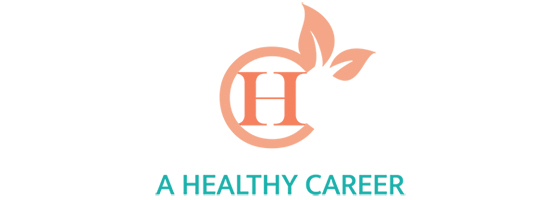Time is one thing that busy career professionals have very little of. When fifteen minutes or more opens up, it’s usually to grab a bite, call family or maybe catch up on business communications. Extra time for mindfulness is no doubt a pipe dream.
“According to the World Health Organization, one third of your life will be spent at work,” reminds Marisa Faye, nutritional therapy practitioner and fitness and wellness expert. Therefore, when work and life take over, we tend to put our personal health and wellness needs on the back burner. Unfortunately, this can shorten our career span not to mention our lives, if we are not careful. Marisa suggests we counteract this negative spiral by “finding one time in your workday that you can incorporate a moment for mindfulness.”
Here are a few reasons why busy professionals should care about mindfulness.
You’ll Listen To Your Body. “Making time for mindfulness and learning how to be more mindful is imperative in order to stay in touch with your body and mind and what you need to feel well,” says Marisa. Honing your abilities to be more mindful helps reverse the negative effects of being a busy career professional working sixty plus hours each week.
It can improve your wellness intelligence, inviting you to be more intuitive to your physical needs. When you listen to your body, and honor what you hear, you can prevent fatigue and illness from setting in. Practicing mindfulness also teaches you how to care for those who depend on you and have a greater appreciation for your colleagues and the environment you inhabit. And if it’s still all about work, well then mindfulness can do wonders for your career.
Your Productivity And Focus Will Increase. According to Amy Jarchow, Ph.D. Clinical Psychologist, “As our society continues to become more fast-pace, busy and digital, people are feeling more stress and less fulfilled.” Mindfulness helps us slow down so we can be more present in the moment. “It can help us become more productive and feel more fulfilled in the work that you do,” she explains. We learn to better appreciate ourselves, others, and the things and experiences that we have when mindfulness becomes a routine practice and this allows us to be more effective, productive and fulfilled, not to mention less stressed.
Taking short breaks to practice mindful breathing helps when you feel overwhelmed. “Mindful breathing: focusing on tackling just one thing at a time by literally closing out and minimizing distractions on your computer,” is one way to begin explains Dr. Jarchow. Another option is taking work off site or booking a conference room so that you are isolated from distractions and for short bursts of time throughout the day. When you schedule thirty to ninety minutes for focused work, you can concentrate solely on accomplishing a project or priority.
Your Reactivity Will Turn To Resiliency. Embracing the practice of mindfulness ties directly into our mental strength. In an age of heightened stress and conflict, learning to resist the negative effects of toxicity can do wonders for your career. “Mindfulness may also help with decreasing emotional reactivity in stressful situations, giving yourself space to slow down and respond in healthier ways rather than on the feeling of the moment,” Dr. Jarchow explains.
“The mind-calming practice of meditation may play a role in reducing your risk of heart disease,” states the Journal of the American Heart Association study published Sept. 28, 2017 and an article in Harvard Health. But this doesn’t necessarily mean you need to stop your work, drop to the floor and meditate. Small pockets of time focusing on your breath, especially when you feel reactive, can help you formulate the habit of non-reactivity, build resiliency and slow your heart rate when anxiety starts to spike.
Your Mindfulness Skills Will Grow. Mindfulness is a muscle that requires building. It doesn’t happen overnight nor is it as simple as flipping a switch. “Being mindful isn’t something that you can stop and start, it’s a practice and state of being,” says Marisa.
“In my holistic nutrition practice, I haven’t met one person who hasn’t benefitted from incorporating mindfulness into their healing and restoration journey.”
Dr. Jarchow agrees and often uses it in her own practice. But she also recognizes that mindfulness is a journey. “Start with something you already do each day, like brushing your teeth or eating and practice narrating the experience to yourself with the intention of focusing on just that one thing in a non-judgmental way,” suggests Dr. Jarchow.“What do you feel, hear, see, touch, and smell? Exploring the sense can help us absorb our experiences and stay present,” she explains. “Yes, your mind will wander, but when it does, just gently bring it back to the task at hand each time you notice it drifting.”
You’ll Know Where To Turn. In addition to the various mindfulness centers throughout the world, there are plenty of resources right in your backyard to guide you in your practice of mindfulness. Local spiritual institutions, hospitals, yoga studios and even libraries are great places to start exploring the why and how of mindfulness. Online options avail, like Mindfulness Without Boarders’ virtual courses designed to teach you how to integrate mindfulness into your busy day while sustaining the benefits of your practice.
There are also dozens of apps that you can download to use as mindfulness muscle builders throughout the day. Smart watches and fitness trackers are usually equipped with heart rate monitors and notifications that pop up when it’s time to slow your pace, focus and breath. Finally, writings and research by Job Kabat-Zinn, known as the father of mindfulness, are worth exploring for empirical proof why busy professionals (and everyone) should care about mindfulness.
Kim Monaghan, PCC, RYT, CPBS is the owner of KBM Coaching & Consulting LLC, a boutique Human Resources Consulting and Career Coaching Firm serving a national clientele.

